City Gun Violence
City Gun Violence
What is the problem?
Gun violence is prevalent in many US cities, particularly in historically underfunded neighborhoods. It spreads through social networks and intensifies long-standing inequities and public health disparities.
An Everytown Research analysis of FBI crime data from over 600 cities found that over half of the country’s reported gun homicides occurred in just 42 cities, including Chicago, Philadelphia, Memphis, Houston, and others.1Everytown for Gun Safety Support Fund, “City Dashboard: Gun Homicide,” October 2024, https://everytownresearch.org/report/city-data/. Everytown Research analysis of FBI NIBRS data, 2023, accessed October 2024. The full list of cities includes: Chicago, IL; Philadelphia, PA; Memphis, TN; Houston, TX; Los Angeles, CA; Washington, DC; Dallas, TX; Detroit, MI; Baltimore, MD; New York, NY; Phoenix, AZ; Kansas City, MO; Milwaukee, WI; Indianapolis, IN; St. Louis, MO; San Antonio, TX; Louisville, KY; Cleveland, OH; Atlanta, GA; Oakland, CA; Birmingham, AL; Nashville, TN; Las Vegas, NV; Albuquerque, NM; Charlotte-Mecklenburg, NC; Fort Worth, TX; Columbus, OH; Denver, CO; Greensboro, NC; Minneapolis, MN; Cincinnati, OH; Portland, OR; Richmond, VA; Austin, TX; Little Rock, AR; Oklahoma City, OK; Seattle, WA; Baton Rouge, LA; Gary, IN; Newark, NJ; Stockton, CA; and Rochester, NY. Nonfatal shootings are also prevalent in cities, and these injuries can have devastating consequences for the rest of a survivor’s life.
There are a wide variety of evidence-informed solutions to reducing gun violence and increasing safety in these communities. These community violence intervention programs include street outreach, Hospital-Based Violence Intervention Programs, and more. City governments should partner with local advocates, residents, survivors, and researchers to ensure that applied strategies are appropriate for and responsive to local contexts.
Why is it an issue?
Gun homicides intensify long-standing inequities.
Within cities, only a small percentage of the total population live within the social networks that are most likely to be involved in gun violence.1Melissa Tracy, Anthony A. Braga, and Andrew V. Papachristos, “The Transmission of Gun and Other Weapon-Involved Violence Within Social Networks,” Epidemiologic Reviews 38, no. 1, (2016): 70–86, https://doi.org/10.1093/epirev/mxv009. The majority of these people live in neighborhoods that are characterized by high rates of poverty; racial segregation and discrimination; as well as many other deep-rooted systemic and structural inequities.2Mudia Uzzi et al., “An Intersectional Analysis of Historical and Contemporary Structural Racism on Non-Fatal Shootings in Baltimore, Maryland,” Injury Prevention 29, no. 1 (2023): 85-90, https://doi.org/10.1136/ip-2022-044700. While the vast majority of residents are not directly involved, the trauma of this ever-present gun violence reverberates throughout their neighborhoods and impacts their lives. Communities facing imminent gun violence crises require immediate and locally-driven interventions in addition to larger scale policy reform. Comprehensive solutions to gun violence must recognize the role of social contagion and local context in cities,3Andrew V. Papachristos, Christopher Wildeman, and Elizabeth Roberto “Tragic, but Not Random: The Social Contagion of Nonfatal Gunshot Injuries,” Social Science & Medicine 125 (2015): 139–50, https://doi.org/10.1016/j.socscimed.2014.01.056; Ben Green, Thibaut Horel, and Andrew V. Papachristos, “Modeling Contagion Through Social Networks to Explain and Predict Gunshot Violence in Chicago, 2006 to 2014,” JAMA Internal Medicine 177, no. 3 (2017): 326–33, https://doi.org/10.1001/jamainternmed.2016.8245; Anthony A. Braga, Andrew V. Papachristos, and David M. Hureau, “The Concentration and Stability of Gun Violence at Micro Places in Boston, 1980–2008,” Journal of Quantitative Criminology 26 (2010): 33–53, https://doi.org/10.1007/s10940-009-9082-x. and supplement policies with community and data-driven violence intervention initiatives.
By the numbers
42 cities
In 2023, over half of the country’s reported gun homicides occurred in just 42 cities, including Chicago, Philadelphia, Memphis, Houston, and others.
>4 in 10
More than four in 10 gun deaths in cities are suicides.
<4%
Fewer than 4 percent of 911 calls are related to violent crime, even in cities with high homicide rates.
What are the solutions?
-
Violence Intervention Programs
Community violence intervention programs provide evidence and community-informed, comprehensive support to individuals who are at the greatest risk of gunshot victimization. These programs are shown to reduce gunshot wounds and deaths in the neighborhoods most impacted by gun violence.
-
Victims of Crime Act (VOCA) Assistance Funding
Victims of Crime Act (VOCA) victim assistance funds are federal funds that can be used to support services for victims and survivors of gun violence. Many of the services eligible for VOCA victim assistance funds are already being provided by gun violence intervention programs, such as street outreach and hospital-based violence intervention programs. VOCA victim assistance grants should be used to help reduce gun violence and support gun violence survivors.
-
Prevent Gun Trafficking
The United States lacks strong federal gun trafficking laws to crack down on illegal gun trafficking networks. Gun trafficking and straw purchasing laws could help keep guns off our streets.
-
Repeal Restrictions on Gun Trace Data
First enacted by Congress in 2003 as a rider to an appropriations bill, the Tiahrt Rider has restricted public access to data about gun crime and firearm trafficking.
-
Gun Dealer Reform
Laws on how gun stores conduct their business have not been strengthened since the 1960s. Congress should pass comprehensive gun dealer reform.
-
Prohibit Auto Sears, Bump Stocks, and Other Rapid-Fire Devices
Fully automatic machine guns—those that fire bullets in rapid succession with a single pull of the trigger—and the parts used to create them have been tightly regulated under federal law since the 1930s.1US Bureau of Alcohol, Tobacco, Firearms and Explosives, “National Firearms Act,” April 7, 2020, https://www.atf.gov/rules-and-regulations/national-firearms-act. However, the gun industry and third-party sellers continue to produce devices that make it easy to convert semi-automatic firearms into illegal machine guns in a matter of minutes.
-
Repeal Gun Industry Immunity
The Protection of Lawful Commerce in Arms Act (PLCAA) blocks legal responsibility for gun manufacturers that have failed to innovate and make guns safer, and for manufacturers, distributors, and dealers with irresponsible, reckless and negligent sales practices that contribute to the flood of illegal firearms in our communities.
-
Report Lost and Stolen Guns
Hundreds of thousands of guns are lost or stolen from private gun owners, gun dealers, or shipping companies every year. Requiring that lost and stolen guns be reported to law enforcement deters illegal gun trafficking. The reporting of these guns allows the police to respond more quickly to gun thefts and helps them identify tracking patterns.
Featured Resources

Summer Youth Employment Programs for Violence Prevention: A Guide to Implementation and Costing
Investing in an SYEP is a cost-effective way to help prevent violence in cities.
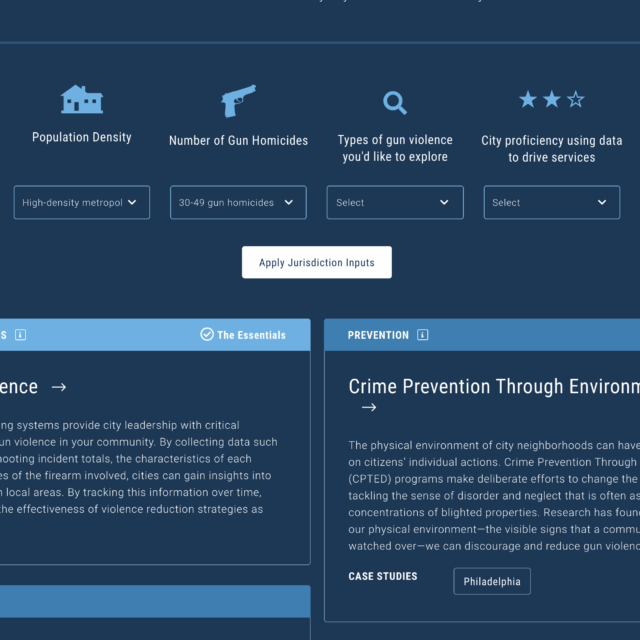
City Gun Violence Reduction Insight Portal
CityGRIP is an online clearinghouse of data-informed gun violence reduction strategies.
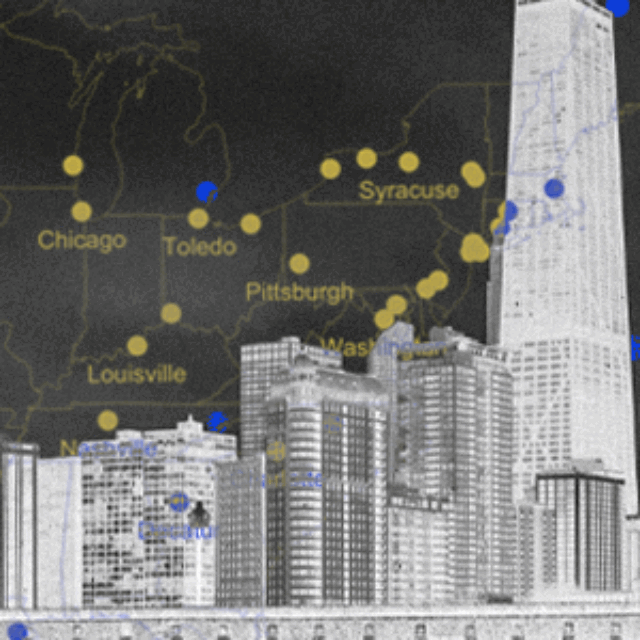
Local Gun Violence Dashboards
Everytown's toolkit outlines 10 steps to launching and effectively using a local gun violence dashboard, and the benefits of doing so.
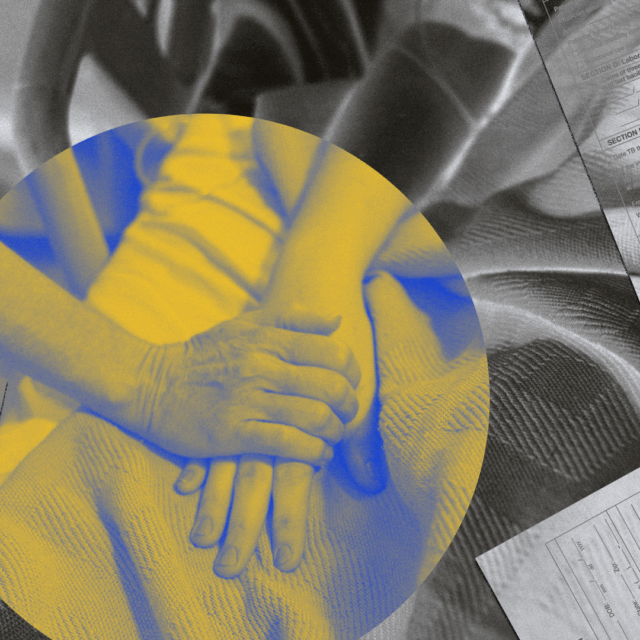
Hospital-Based Violence Intervention Programs: A Guide to Implementation and Costing
All Resources
City Gun Violence
All Resources
Who is Manufacturing the Guns Used in Crimes?
The same manufacturers who are engaging in risky business practices to profit the most from gun sales are also behind the most gun crimes.
Report
Fear versus Facts: Gun Violence is Definitely Down
Is violent crime on the rise in the United States? This election season, if you’re listening to fear-mongering media1…
ReportNew Data, Same Conclusion: Smart Gun Laws Save Lives
Everytown's Gun Law Rankings show a clear correlation between states with strong gun laws and lower rates of gun violence.
Everytown Research & Policy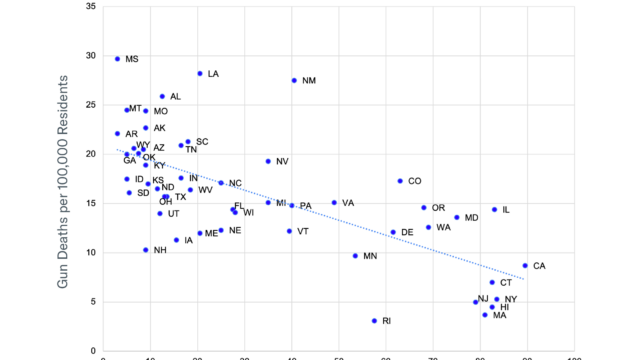
The Changing Demographics of Gun Homicide Victims and How Community Violence Intervention Programs Can Help
As we approach summer, it is crucial that community violence intervention programs are accessible and tailored to those most affected.
Everytown Research & PolicyBeyond Measure: Gun Violence Trauma
This study focuses on trauma from gun violence by listening to the voices and experiences of those directly impacted.
Report
Suicidio con armas de fuego en las ciudades: El lado menos conocido de la violencia con armas de fuego en las ciudades
Las tasas de personas que mueren por suicidio con armas de fuego en las ciudades están en aumento.
Report
City Dashboard: Gun Homicide
Across FBI-reporting cities with populations 65,000+: Gun homicide data featured in this dashboard is drawn primarily from the FBI’s annual National Incident-Based Reporting System (NIBRS),…
Data TrackerGun Suicide in Cities: The Lesser-Known Side of City Gun Violence
Rates of people who die by gun suicide in cities are on the rise, but, until now, a dearth of city-level data leaves it often overlooked.
Report
Gun Thefts from Cars: The Largest Source of Stolen Guns
Gun thefts from cars are the largest source of stolen guns—one that continues rising in parallel with rates of gun sales and violence.
Everytown Research & Policy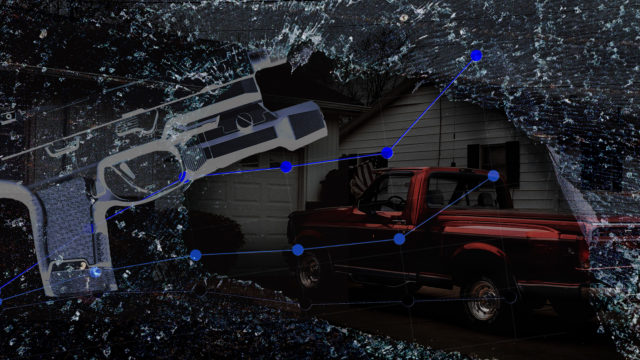
Robos de armas en vehículos: la fuente más grande de armas robadas
Una investigación de Everytown for Gun Safety Support Fund revela que los robos de armas en vehículos son la mayor fuente de armas robadas.
Everytown Research & Policy
The Economic Cost of Gun Violence
In an average year, gun violence in America kills 40,000 people, wounds nearly twice as many, and costs our nation $557 billion.
Report
The Impact of Gun Violence on Latinx Communities
Latinx people in the United States are dying from gun violence every day and at rates disproportionate to their white peers.
Fact SheetEl impacto de la violencia con armas de fuego en las comunidades latines
Las personas latines en los EE UU mueren a causa de la violencia armada en tasas desproporcionadas con respecto a los blancos.
Fact SheetCalculate the Economic Cost of Gun Violence
Examining the economic consequences of gun violence is paramount to understanding just how extensive and expensive this crisis is.
Data ToolFunding Summer Youth Programming Prevents Gun Violence
As cities develop their spending plan for American Rescue Plan funds, they should prioritize and plan funding for summer youth engagement.
Fact SheetAlternative Dispatch Programs
Creating alternative dispatch options that connect people in crisis with mental health services is key in preventing police gun violence.
Fact Sheet
Invisible Wounds: Gun Violence and Community Trauma among Black Americans
Persistent gun violence is harming too many Black communities in the U.S., contributing to individual, family, and community-level trauma.
Report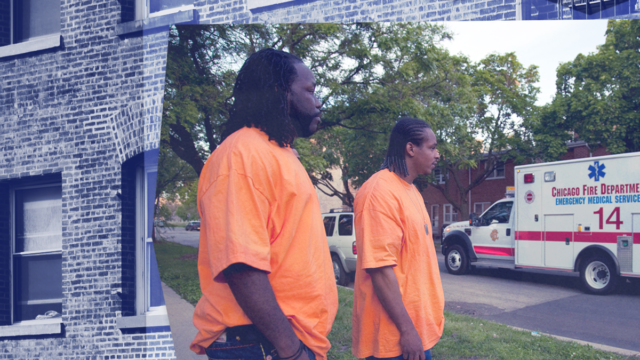
Hurdles to Healing: Fixing Victim Compensation Funds
Victim compensation funds are available to survivors of gun violence, but obstacles and restrictions make the funds difficult to access
Fact Sheet
American Rescue Plan for Gun Violence Reduction
States and local governments governments can utilize American Rescue Plan funds to prevent or address gun violence in cities.
Fact SheetCommunity-Led Services for Survivors
Community-led services can assist survivors by responding to incidents of gun violence in their community and providing ongoing care.
Fact Sheet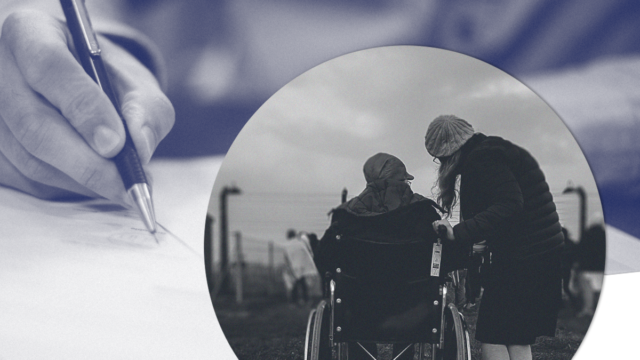
A Deadly Year in Cities — And How Policymakers Can Respond
While the long term effects of COVID-19 still aren’t fully clear, it is evident that cities have experienced historic levels of violence.
Fact Sheet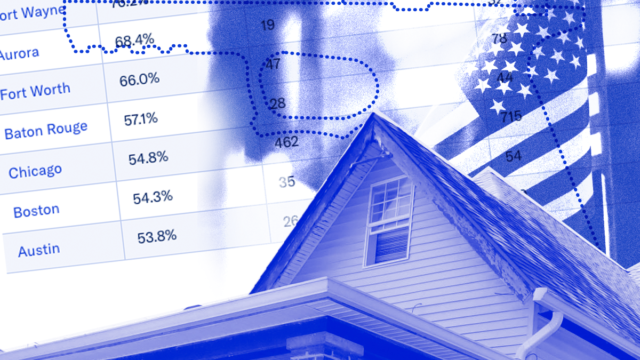
A More Complete Picture: The Contours of Gun Injury in the United States
Nonfatal gunshot wounds account for an enormous portion of the gun violence epidemic in America.
Report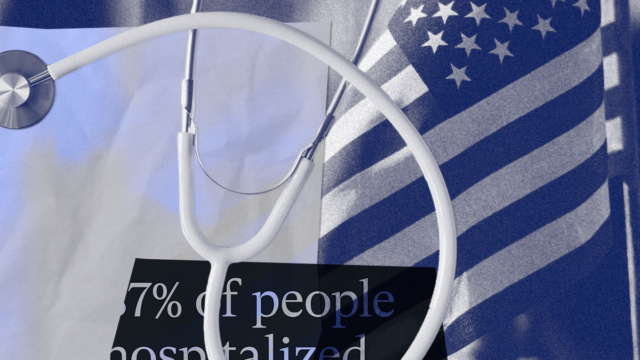
Community-Led Public Safety Strategies
Communities affected by gun violence need immediate and locally driven interventions in addition to larger scale policy reform.
Fact SheetHow COVID-19 Has Increased the Need for Street Outreach Work
Street outreach teams have long been at the front lines of gun violence prevention work and are now battling two pandemics at once.
Fact Sheet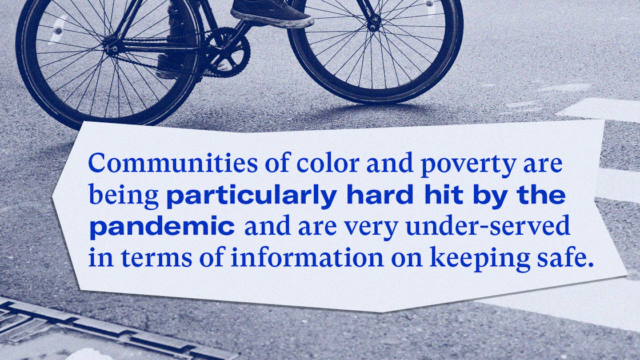
Gun Violence and the Police
Every year, police in America shoot and kill more than 1,000 people.
Fact Sheet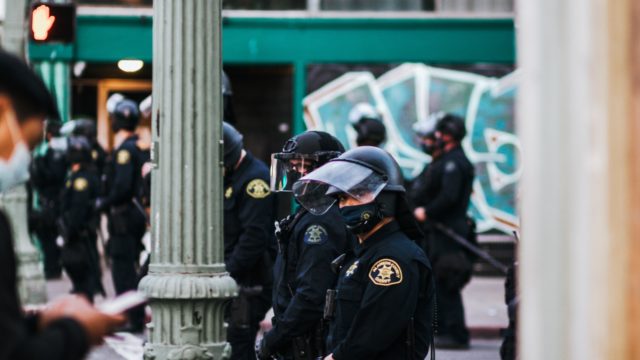
Gun Violence in America
We have gathered the most comprehensive, publicly available data to illustrate the magnitude of everyday gun violence.
Report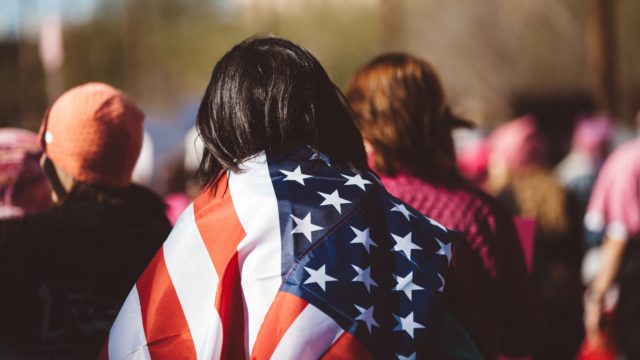
A Fund for Healing: VOCA Grants for Violence Reduction
America’s gun homicide rate is tragic and unique—it is 26 times higher than that of other high-income countries.1…
ReportCrime Prevention Through Environmental Design
Crime Prevention Through Environmental Design involves work to change the built environment to reduce crime and increase community safety.
Report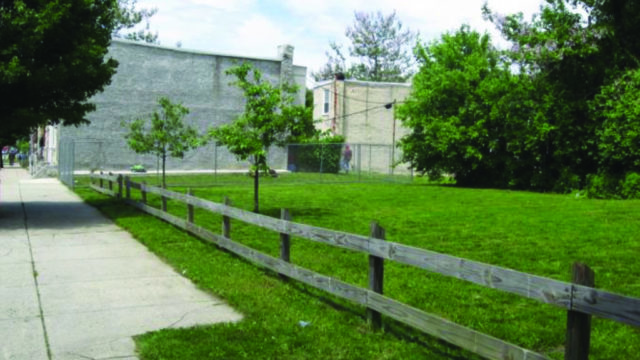
Stolen Guns Pose a Tremendous Risk to Public Safety
Thousands of guns are stolen every year and often wind up at crime scenes. Stolen guns pose a tremendous risk to public safety.
Fact Sheet
Five Ways to Enhance the Gun Violence Prevention Strategy in Your City
Cities that have sustained success preventing gun violence have deployed multi-disciplinary, community-involved approaches to response and prevention. Below are five steps that you can take…
Fact Sheet
